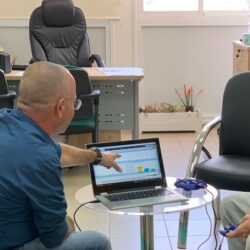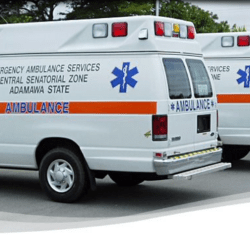Depression is a common mental health condition that can have a major impact on both mental and physical health.

People with depression often experience feelings of sadness, hopelessness, and low self-esteem. These feelings can lead to changes in behavior, such as withdrawing from social activities, overeating or undereating, and not getting enough sleep. In turn, these behavioral changes can have a negative effect on physical health. For example, a lack of sleep can increase the risk of heart disease and obesity. Additionally, people with depression may neglect their health, which can lead to further problems.
There are many ways that depression can negatively impact physical health. One of the most significant ways is through the immune system. Depression can weaken the immune system, making it harder for the body to fight off infections and illnesses. This can lead to more frequent and severe illnesses, which can have a major impact on a person’s quality of life. Additionally, depression has been linked to an increased risk of developing chronic diseases like diabetes and heart disease. It’s also been linked to a higher risk of developing physical symptoms like headaches, digestive issues, and joint pain.
MENTAL AND PHYSICAL HEALTH
Mental state can have a significant impact on our physical health, and vice versa.
Studies have shown that people with depression are more likely to develop certain physical health conditions, such as heart disease and diabetes.
Additionally, chronic stress can take a toll on our physical health by causing inflammation, which can lead to a variety of health problems. On the other side, taking care of our physical health can improve our mental health, and vice versa.
It is true that the aforementioned states how various physical health conditions could become a possible challenge towards the wellbeing of our physical health, although amongst all that was mentioned this sturdy will be dealing more on depression as there have been so many cases and research studies found on the subject matter about “depression”.
Mental health relates to our social wellbeing as well as our psychological and emotional state of mind. The word “mental” relates to the mind.
It is natural for people to feel emotionally strained, worried, nervous or fearful at times. These emotions stimulate the body’s survival mechanisms to prepare us for action against anticipated danger and misfortune.
These mental stimuli are collectively known as ‘anxiety’ and can modify brain processes and behaviour. Anxiety can become a mental disorder when it becomes uncontrollable, unexpected and unhelpful. It can seriously affect someone’s life, work and health.
Depression can be described as a ‘lowering of feelings’ that affects emotional states, thoughts, self-esteem, happiness and self-worth. It can last for short or prolonged periods.
When depression becomes more developed, it can be described as feeling like a physical disease that has overwhelmed the body and the brain. This gives the conception that the psychological condition can feel like it has become a physical condition. It is normal to feel ‘down’ or ‘low’ at times in response to traumatic, difficult or emotionally demanding ordeals. However, if someone is unable to make a transition from this temporary negative state to a more positive coping state, they may have depression.
it’s important to remember that a person’s mental health can change over time, depending on many factors. When the demands placed on a person exceed their resources and coping abilities, their mental health could be impacted. For example, if someone is working long hours, caring for a relative, or experiencing economic hardship, they may experience poor mental health. There is no single cause for mental illness. A number of factors can contribute to risk for mental illness, such as:
1.Biological factors or chemical imbalances in the brain.
2.Experiences relating to ongoing (chronic) medical conditions such as cancer or diabetes.
3.Traumatic childhood experiences for example, child abuse, sexual assault, witnessing violence.
4.Intake of Alcohol and harmful drug substances.
5.Having feelings of loneliness or isolation
People can experience different types of mental illnesses or disorders, and they can often occur at the same time. Mental illnesses can occur over a short period of time or be episodic. This means that the mental illness comes and goes with discrete beginnings and ends. Mental illness can also be ongoing or long-lasting.
PHYSICAL HEALTH
Physical health is a broad term that refers to the state of a person’s body. It includes things like a person’s fitness level, weight, and overall physical wellbeing. There are many factors that contribute to a person’s physical health, including
●Diet.
●Exercise.
●Sleep.
● Stress levels.
Poor physical health can lead to health problems like heart disease, diabetes, depression and obesity. It has been medically advised that good physical health can reduce the risk of these health problems and improve a person’s quality of life. Physical health is closely linked to mental health and an integral part of leading a healthy lifestyle and enjoying life. This is often taken for granted and it isn’t until we are sick, ill or injured that we put the time and energy into looking after our physical health. It is important to regularly monitor your overall physical health and get a check-up if you (or someone you know) are concerned.
SIGNS AND SYMPTOMS OF DEPRESSION
If you have been experiencing some of the following signs and symptoms, most of the day, nearly every day, for at least 2 weeks, you may be experiencing depression:
●Persistent sad, anxious or “empty” mood.
●Feelings of hopelessness or pessimism.
●Feelings of irritability, frustration, or restlessness.
●Feelings of guilt, worthlessness, or helplessness.
●Loss of interest or pleasure in hobbies and activities.
●Decreased energy, fatigue, or feeling slowed down.
●Difficulty concentrating, remembering, or making decisions.
●Difficulty sleeping, waking early in the morning, or oversleeping.
●Changes in appetite or unplanned weight changes.
●Physical aches or pains, headaches, cramps, or digestive problems that do not have a clear physical cause and do not go away with treatment.
●Thoughts of death or suicide or suicide attempts.
WAY FORWARD
Since chemistry in the brain is linked to depression, a person might take an antidepressant, which can modify the brain’s chemistry. Typical treatment includes antidepressants or other medications, psychotherapy (talk therapy), or a combination of the two interventions. Personalizing treatment to the individual can increase the chances that it will be successful.
Doctors also refer to this condition as major depressive disorder or clinical depression. An estimated 1 in 6 people, or nearly 17 percent of Americans, will experience depression at some point in their lifetime, according to the American Psychiatric Association. About 7 percent of Americans have at least one major depressive episode per year. Although the symptoms can start at any age, depression is most likely to begin during a person’s teens or 20s.
The first step is to seek help for depression. This could involve talking to a therapist, taking medication, or participating in other forms of treatment. Once depression is being addressed, it’s important to focus on improving physical health. Exercise is a great way to do this, as it releases endorphins and can help to improve sleep quality. Eating a balanced diet and getting enough sleep are also important. And finally, reducing stress is key. Finding ways to relax, like meditation or yoga, can help to lower stress levels and improve physical health.















